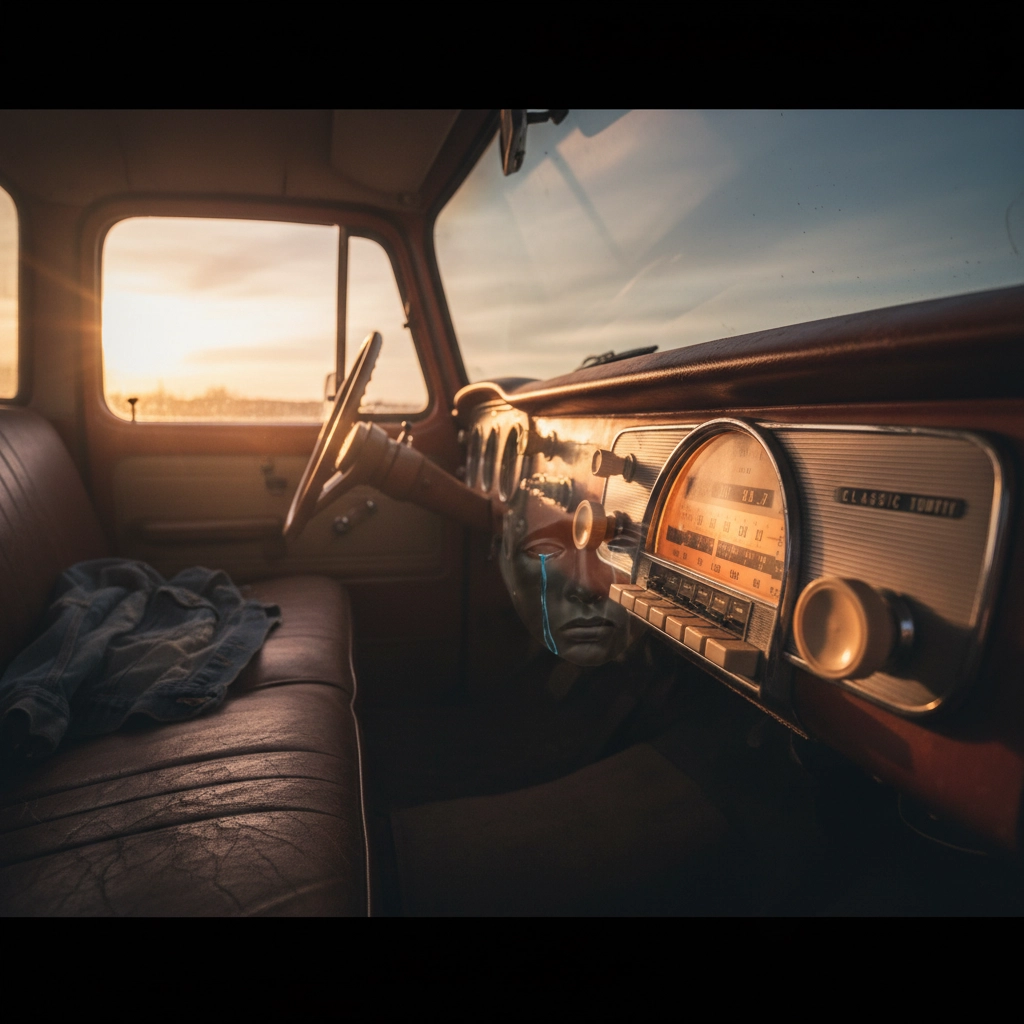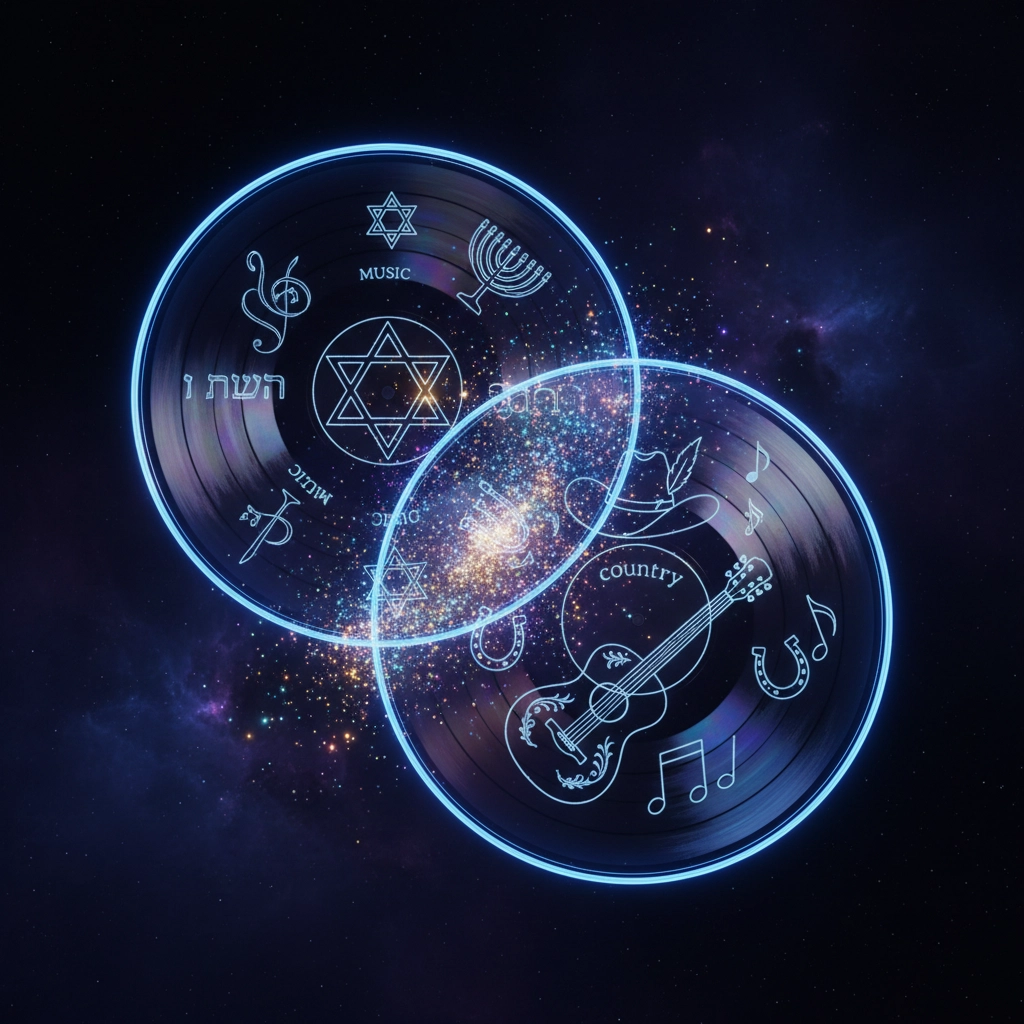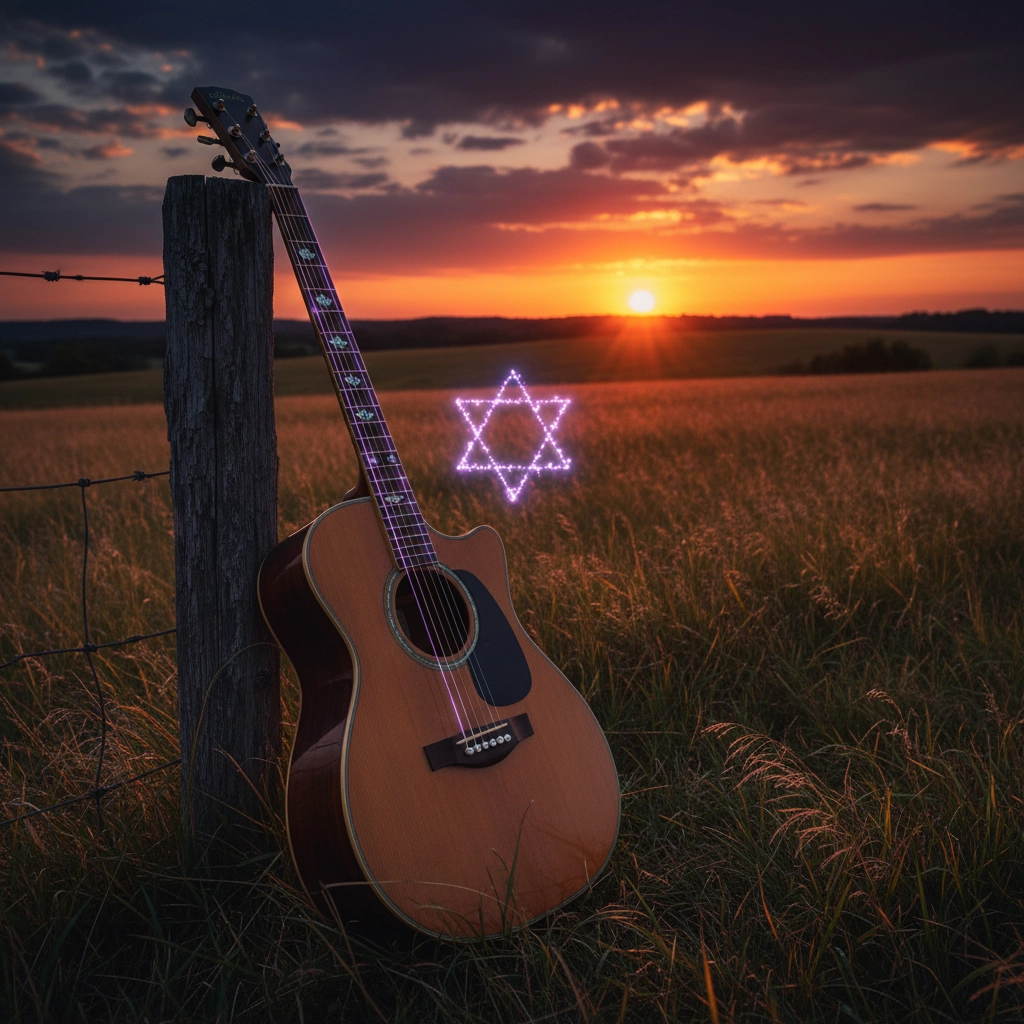
Torn Between Two Worlds: How Jewish Listeners Find Belonging in Country Rock Without Compromise
Picture this: You're driving down a backroad, windows down, and that perfect country rock song comes on. The guitars are twangy, the drums are driving, and the lyrics hit you right in the soul. There's just one problem: the song's about finding Jesus, and you're Jewish.
For decades, this scenario has played out for countless Jewish music lovers who found themselves caught between their appreciation for country rock's sound and their discomfort with its predominantly Christian messaging. It's a unique kind of musical exile: loving a genre that doesn't seem to have room for your story.
When Faith Meets the Crossroads
Country rock has always worn its heart on its sleeve, and for most of its history, that heart has beaten with Christian faith. From the early pioneers to modern stadium acts, songs about salvation, Jesus, and Christian redemption have been the genre's spiritual backbone. Nevertheless, for a Jew this is inherently wrong to listen to because this is not part of our religion.
But it created an unintended consequence. Jewish listeners who connected with country rock's raw honesty, its storytelling tradition, and its emotional depth found themselves spiritual outsiders in their own favorite genre. They could love the music, but couldn't fully inhabit the message.

The conflict runs deeper than just changing radio stations when certain songs come on. Country rock's appeal lies in its authenticity: the sense that artists are baring their souls and inviting you into their world. When that world consistently excludes your spiritual experience, you're left with a choice: love the music and ignore the disconnect, or find something else entirely.
The Musical DNA We Share
Here's what many people don't realize: Jewish musical traditions and country rock share profound connections that go beyond surface similarities. Both traditions prioritize emotional truth over technical perfection. In Jewish cantorial singing, just like in blues and country music, the voice slides around notes rather than hitting them with rigid precision.
This isn't about being sloppy: it's about finding meaning in the spaces between the notes. Both Jewish and country musical traditions understand that the soul lives in those moments of searching, of testing the best route to emotional truth. When a country singer bends a note or lets their voice crack with emotion, they're tapping into the same well of human expression that Jewish singers have drawn from for centuries.
The storytelling traditions align too. Jewish music has always been about preserving history, celebrating resilience, and wrestling with life's bigger questions. Sound familiar? That's because country rock does the exact same thing, just with different cultural touchstones.
A New Voice in the Wilderness
This is where my music enters the conversation. Growing up Jewish and loving country rock meant living with that constant tension: until I decided to stop living with it and start addressing it instead. That turning point became my first foray into country rock: an ongoing Jewish Country Rock album series called Holy Outlaws, kicking off with Holy Outlaws Volume 1 on September 1st.
On Holy Outlaws Volume 1, the songs finally tell Jewish stories through country rock's musical language. They aren't awkward cultural mashups; they're natural expressions of what happens when country rock's emotional honesty meets Jewish experience. You hear it from the jump: the opening track barrels forward with Telecaster twang and a chorus about holding fast to emunah on the highway home. Midway through, a private prayer turns into a porchlight sing-along. The fiddle-driven closer leans into hope and geulah, wrapping a timeless promise in boots-and-spurs energy.

When I wrote the songs for Holy Outlaws Volume 1, I wasn't trying to create some kind of cultural bridge-building exercise. I was simply expressing my faith through the musical vocabulary that felt most authentic to me. Some verses grew out of lines I scribbled after learning Tehillim and the weekly parsha, then set against backbeat drums, dobro, and harmonies you can sing along with. The result was something that Jewish country rock fans had been waiting for without even knowing it: songs that let them feel fully at home in both worlds.
Beyond Representation: Creating Space
This isn't just about Jewish artists making Jewish country rock (though that's important). It's about expanding what the genre can hold. When Jewish voices enter country rock, they don't diminish the Christian tradition: they enrich the overall conversation about faith, struggle, and finding meaning.
Consider how several cuts on Holy Outlaws Volume 1 speak to universal experiences of calling out to something greater — from a dust-kicking anthem about trusting Hashem when the road goes dark, to a quiet waltz that turns a bedside Shema into a tender lullaby. Elsewhere on Volume 1, Torah-inspired hooks, Jewish call-and-response, and Torah-rooted imagery ride over banjo and steel. Each approach serves a different purpose, but both expand what's possible within the genre.
Jewish listeners don't need country rock to become Jewish: they need country rock to become big enough to include Jewish experience alongside everything else it already contains.

The Ripple Effect
When Jewish artists create authentic country rock, something interesting happens: it doesn't just serve Jewish listeners. It demonstrates to everyone that country rock's power comes from authentic expression, not from adhering to specific religious or cultural formulas.
Other artists from different backgrounds see that there's room for their stories too. Listeners who may have felt similarly displaced: whether due to religion, culture, or simply different life experiences: realize they don't have to choose between loving country rock and being themselves.
This expansion doesn't weaken country rock's identity. Instead, it proves the genre's fundamental strength: its ability to take honest human experience and transform it into music that moves people.
Finding Home in the Music
For Jewish country rock fans, this shift means something profound. It means being able to turn up the radio without reservation. It means finding songs that speak your spiritual language while using your favorite musical vocabulary. It means belonging without compromise.
But it also means something bigger: it proves that musical genres aren't fixed territories with rigid borders. They're living, breathing spaces that grow stronger when they welcome authentic voices from different backgrounds.
Tracks across Holy Outlaws Volume 1 show how country rock can embrace different perspectives while maintaining its essential character. Telecasters snarl, fiddles dance, and the rhythm section stomps — while the stories lean into Emunah, Teshuva, and the long walk toward Jerusalem. The music doesn't become less country rock because it includes Jewish experience: it becomes more itself by fulfilling its promise of honest storytelling.
The Road Ahead
This transformation is still in its early stages. Jewish country rock artists are creating space for themselves and their listeners, but there's room for so much more. The genre is large enough to hold many different expressions of faith, culture, and human experience.
What matters most is that Jewish listeners no longer have to choose between their musical preferences and their spiritual identity. They can have both, fully and without apology.
If you're one of those listeners who's been caught between two worlds, know that those worlds were never as separate as they seemed. The music was always big enough for your story: it just needed someone to start telling it.
Ready to experience country rock that speaks your language? Start with Holy Outlaws Volume 1—the first release in my ongoing album series—on my music page and discover what it sounds like when Jewish experience meets country rock authenticity. Your musical home is waiting.